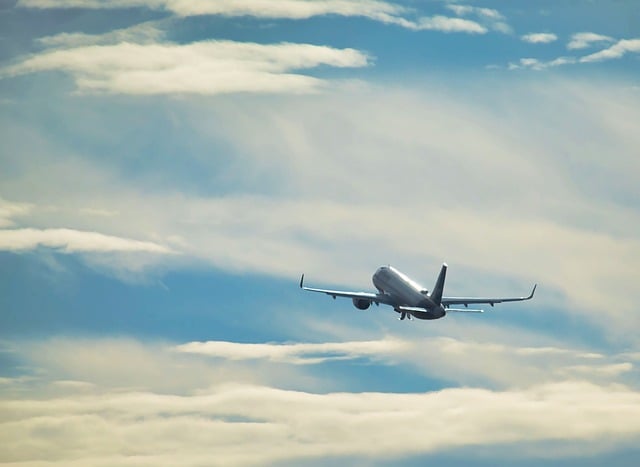Singapore’s aviation industry stands as a global benchmark for efficiency, innovation, and resilience. From its humble beginnings as a regional hub to becoming one of the world’s most connected and advanced air transport ecosystems, Singapore’s success in aviation is the result of strategic planning, forward-looking policies, and a strict commitment to excellence.
The Strategic Role of Aviation in Singapore’s Economy
Aviation is a cornerstone of Singapore’s economy. As a city-state with no natural resources, Singapore’s growth has always depended on connectivity, both physical and digital. The aviation sector contributes more than 5% of Singapore’s GDP and supports over 190,000 jobs, directly and indirectly.
Changi Airport serves as the heart of this ecosystem, linking Singapore to over 130 cities worldwide. The nation’s aviation network not only supports passenger travel but also underpins trade, tourism, logistics, and business investment.
In short, the success of Singapore’s economy and its aviation sector are deeply intertwined.
Changi Airport: More Than a Global Gateway
Few airports command global admiration like Singapore Changi Airport, consistently ranked among the world’s best. It is not merely an airport; it’s a national icon that embodies Singapore’s essence of efficiency, innovation, and hospitality.
- Passenger experience: From the Jewel Changi complex with its indoor waterfall and retail experiences to its automated check-in and biometric systems, Changi is designed to make travel seamless and enjoyable.
- Capacity expansion: The upcoming Terminal 5, slated to be one of the largest terminals in the world, will increase Changi’s capacity by up to 50 million passengers annually, ensuring Singapore remains future-ready.
- Sustainability: Changi is investing in green infrastructure, energy-efficient operations, and sustainable aviation fuel partnerships to support Singapore’s Green Plan 2030.
Singapore Airlines: The National Flagbearer of Excellence
Singapore Airlines (SIA) is a national brand synonymous with quality and reliability. Its global reputation is built on precision, innovation, and world-class service.
The airline’s strategic advantages include:
- A strong premium positioning and brand loyalty.
- A robust fleet renewal plan with fuel-efficient aircraft like the Airbus A350 and Boeing 787.
- Investments in digital transformation, customer personalisation, and sustainability.
The SIA Group, which includes Scoot, captures both premium and budget markets while maintaining operational excellence and profitability, even amid global headwinds.
The Aviation Ecosystem: Beyond Airlines and Airports
Singapore’s aviation success extends well beyond its flagship airline and airport. The nation has built a comprehensive aerospace and aviation ecosystem encompassing maintenance, repair, and overhaul (MRO), air traffic management, training, and research.
Aerospace Engineering & MRO (Maintenance, Repair, and Overhaul)
Singapore is Asia’s leading MRO hub, handling over 10% of the global MRO market share. Major players like ST Engineering, Pratt & Whitney, and Rolls-Royce have established regional headquarters and facilities here.
Aviation Training and Safety
Singapore is also home to world-class institutions such as the Singapore Aviation Academy and Singapore Flying College, which provide specialised training for pilots, engineers, and aviation professionals globally.
Air Traffic Management and Technology
Singapore’s Civil Aviation Authority (CAAS) collaborates with global partners to modernise air traffic management, leveraging AI, automation, and data analytics to enhance safety and efficiency in one of the world’s busiest flight regions.
Innovation and Sustainability: The Flight Path to the Future
As global aviation evolves, Singapore is positioning itself at the forefront of innovation and green transformation.
Digital Transformation
The aviation sector is embracing smart technologies, including biometric boarding, predictive maintenance, and AI-driven flight operations. The government’s Smart Nation vision extends deeply into aviation, integrating digital ecosystems for efficiency and passenger experience.
Sustainable Aviation
With climate change and environmental concerns becoming central issues, Singapore is leading regional efforts in sustainable aviation fuel (SAF) adoption, carbon reduction initiatives, and green airport design. Changi and SIA are both part of global coalitions exploring SAF production in Asia.
Post-Pandemic Rebound and Future Outlook
The COVID-19 pandemic hit aviation harder than any other sector but Singapore’s rebound has been remarkable. By 2024, passenger volumes at Changi returned to 90% of pre-pandemic levels, and air freight remained robust due to Singapore’s strong logistics and pharmaceutical industries.
Looking forward, several key trends will shape the future:
- Rise of regional travel and middle-class demand in Asia.
- Integration of digital and physical infrastructure through smart airports.
- Focus on sustainability and carbon-neutral aviation.
- Greater collaboration between public and private sectors to enhance resilience.
Singapore’s government and aviation leaders are already taking proactive steps to prepare for the next era of global air travel.
Opportunities in the Aviation Industry in Singapore
Singapore’s aviation industry exemplifies what strategic foresight, innovation, and disciplined governance can achieve. The city-state’s model of combining public-sector vision with private-sector execution has turned aviation into a pillar of national identity and economic strength.
As the world enters a new chapter of aviation defined by sustainability and technology, Singapore continues to soar above turbulence not merely keeping pace with global change, but shaping the skies of tomorrow.
Singapore’s aviation industry is also a magnet for global talent, investment, and innovation. As the sector continues to expand in response to regional growth and global connectivity, new opportunities are emerging across multiple domains: aerospace engineering, digital aviation, logistics, sustainable fuel development, data analytics, and advanced manufacturing.
To sustain this progress, Singapore actively welcomes foreign professionals and businesses who bring specialised expertise, entrepreneurial drive, and cross-border collaboration to its aviation ecosystem. Skilled engineers, pilots, AI specialists, maintenance experts, and aviation technology entrepreneurs are in growing demand, strengthening Singapore’s position as Asia’s aviation hub.
This alignment between national priorities and global talent mobility has a direct impact on Singapore Permanent Residency (PR) and Citizenship pathways. Applicants with backgrounds in aviation, aerospace, and technology-related sectors often find their profiles strategically aligned with Singapore’s long-term manpower and innovation goals.
Immigration@SG (IASG) stands at the forefront of this intersection; helping professionals, investors, and corporate leaders navigate Singapore’s immigration and business landscape with clarity and confidence. As a trusted immigration advisory firm, IASG provides strategic guidance on PR and Citizenship applications, and facilitates business establishment for those looking to anchor themselves in Singapore’s forward-looking economy.
For global talents and enterprises ready to seize the opportunities in Asia’s most dynamic aviation ecosystem, IASG can help guide you toward sustainable success, long-term stability, and a future built on Singapore’s vision of excellence.







